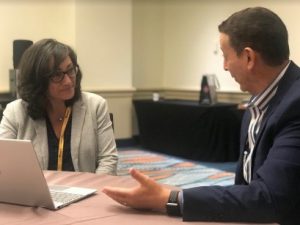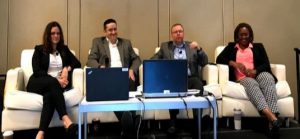When 30 + 2 Doesn’t Equal 32
By Audrey Priolo, Litigation Review Attorney
Before working at American LegalNet, I did not have time to delve into the seemingly infinite exceptions and intricacies of date calculations. While the thought of taking hours to analyze time calculations spoke to my OCD tendencies and love of research, the last thing I had time to do when preparing for trial, was to sit down and deeply analyze the impact of holidays, service offsets, and reverse calculations. Once I became a rules attorney with American LegalNet, I realized the importance of these seemingly innocuous details. It did not cross my mind as a busy litigator that under these very “simple” deadlines lurked exceptions that could lead to missed deadlines and thus a malpractice action.
Take the example of a “simple” discovery calculation in California. First, deadlines may be impacted by weekends and holidays. (CCP 12a). Next, deadlines calculated forward will continue to roll forward when adding days for mailing, but deadlines calculated backwards will continue to roll back. (CCP 12c). For example, the deadline to respond to interrogatories served electronically is calculated by adding 30 days to the date the discovery was propounded (CCP 2030.260(a)), then adding two court days to account for the electronic service offset (CCP 1010.6). If the due date lands on a weekend or holiday, the deadline rolls forward and is due on the next weekday. Simple enough, right? Not quite.
Consider now, the deadline for the last day to serve interrogatories electronically prior to the discovery cutoff. Instead of calculating 30 days forward, you must count back 30 days from the discovery cutoff. Two court days for electronic service must be added. However, what happens when holidays and/or weekends get thrown into the mix?
Assume you have a Discovery Cutoff of May 28, 2019. If you calculate the last day to serve discovery by adding two court days out after the 30-day calculation, the following deadline is generated:
5/28/19 – 30 days = Sunday 4/28/19 – 2 court days = 4/25/19
This calculation indicates the last day to serve interrogatories electronically is April 25, 2019. However, if interrogatories are served electronically on 4/25/19, the due date will be after the May 28, 2019 discovery cutoff.
4/25/19 + 30 days = 5/25/19 + 2 court days = 5/29/19
If relying on this calculation, you would serve the electronic interrogatories a day late. The opposing party would likely only serve objections on May 29, 2019 because the responses were served late and due after the discovery cutoff. Accordingly, the service offset calculation must be taken out before the 30-day calculation. This assures the interrogatories will have a due date on (or before) the cutoff date:
5/28/19 – 2 court days = 4/23/19 – 30 days = 4/23/19
If interrogatories are served on April 23, 2019, the responses will be due on the day of the discovery cutoff:
4/23/19 + 30 days = 5/23/19 + 2 court days = 5/28/19
This is just one example where a seemingly “simple” calculation can lead to a wrong deadline. Legal deadlines are full of exceptions and intricacies that many docketing clerks and attorneys always take the time to properly analyze. Fortunately, there are attorneys researching and analyzing the inner workings of deadlines. However, it is still extremely important for all docketing clerks and attorneys to fully understand and examine deadlines to ensure deadlines are calendared and double-checked properly. Without this full knowledge and the right calendaring system in place, eventually an important deadline will be missed. For further discussions regarding deadlines, check American LegalNet’s online blog as we will continue to publish articles to raise awareness and prevent calendaring errors.
Audrey L. Priolo is a licensed California attorney with over 13 years of litigation and trial experience, who now works at American LegalNet as a Litigation Review Attorney. Questions may be directed to apriolo@alncorp.com
Click HERE to view the video.

 We saw tremendous interest in our product demo room and in our booth and the enthusiasm seemed to build as the week went on and the good news about ALN spread throughout the show. Some great interviews with the onsite press helped spread that news about the exciting things going on with ALN. A special thank you to Niki Black for her reference.
We saw tremendous interest in our product demo room and in our booth and the enthusiasm seemed to build as the week went on and the good news about ALN spread throughout the show. Some great interviews with the onsite press helped spread that news about the exciting things going on with ALN. A special thank you to Niki Black for her reference. 
 We also had a great time at the ALN Cup Table Tennis Tournament that was held on Monday night. There was some great sportsmanship, a lot of fun, and some very close matches leading up to the finals. Here I am congratulating the finalists – the big winner Rodney Holaday (Vorys Sater Seymour & Pease), Doug Mathews (Vorys Sater Seymour & Pease, LLP) and Joshua Silverman (Beveridge & Diamond, P.C.).
We also had a great time at the ALN Cup Table Tennis Tournament that was held on Monday night. There was some great sportsmanship, a lot of fun, and some very close matches leading up to the finals. Here I am congratulating the finalists – the big winner Rodney Holaday (Vorys Sater Seymour & Pease), Doug Mathews (Vorys Sater Seymour & Pease, LLP) and Joshua Silverman (Beveridge & Diamond, P.C.). 
